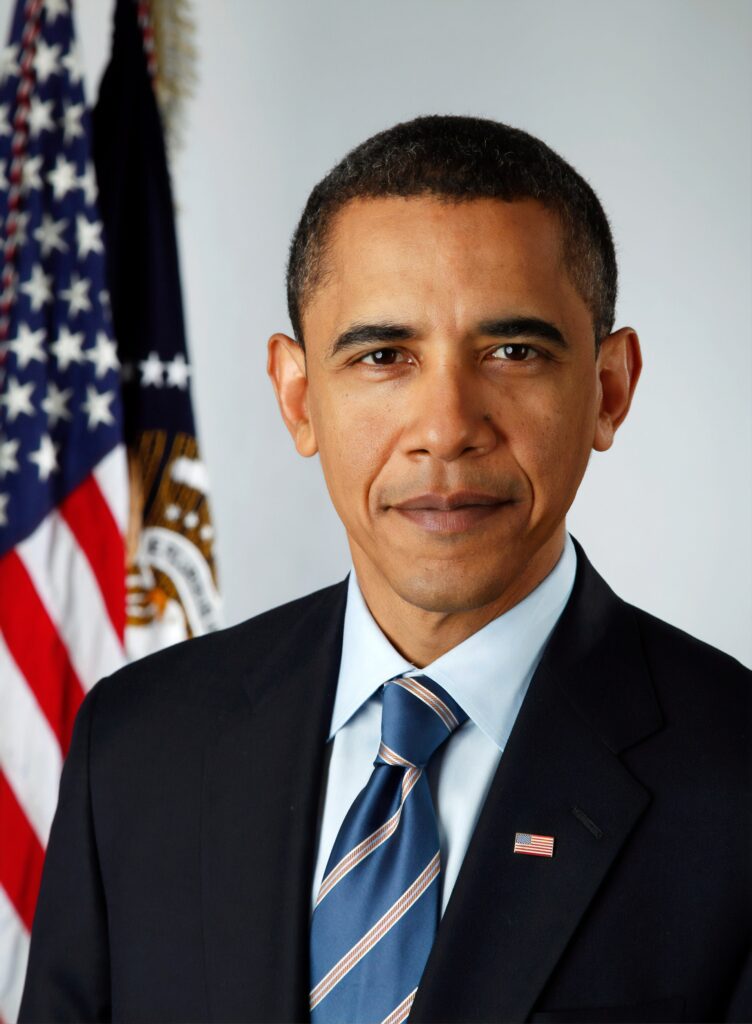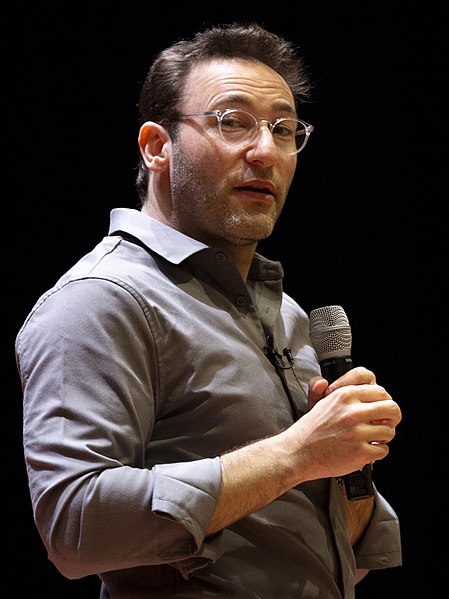The Obama Leadership Compass: Charting a Course for Transformative Change
 Embarking on Obama’s Leadership Journey
Embarking on Obama’s Leadership Journey
Leadership is an enduring and evolving concept that continues to captivate the attention of people worldwide. In a rapidly changing world, it is essential for individuals to understand and learn from the journeys of successful leaders who have demonstrated exceptional abilities to navigate through complex challenges and inspire others. Barack Obama, the 44th President of the United States, is one such leader whose life and political career offer invaluable lessons in leadership. This article aims to provide insights into the leadership strategies and qualities that have contributed to Obama’s lasting impact and enduring legacy.
Barack Obama emerged as a transformative leader at a time when the United States was facing significant challenges, both domestically and on the global stage. His election as the first African American President of the United States was a testament to his ability to break barriers, unite diverse groups of people, and bring about positive change. As President, Obama demonstrated a unique combination of vision, empathy, adaptability, and resilience, which not only helped him navigate the challenges of his presidency but also left an indelible mark on the lives of millions of people around the world.
In this article, we will delve into the various aspects of Obama’s leadership style, drawing from his early life experiences, political career, and personal stories that shaped his journey. We will explore key leadership lessons that can be applied across various contexts, both in our personal and professional lives. By understanding the strategies and qualities that have contributed to Obama’s success as a leader, we hope to empower our readers with valuable insights that can inspire them to become better leaders in their own right.
The objective of this article is not to provide an exhaustive account of Obama’s life or political accomplishments but to offer a comprehensive understanding of the leadership lessons that can be derived from his journey. We believe that by analyzing the key elements of his leadership style, we can learn how to navigate the complex challenges of our own lives and contribute positively to the world around us.
In the sections that follow, we will trace Obama’s journey from his early life and background, through his political career, to his post-presidency era. We will examine the key leadership lessons that emerged from his experiences, including the power of empathy, the art of effective communication, the importance of leading with vision and purpose, embracing diversity and inclusion, and the value of resilience and adaptability. Throughout the article, we will share personal stories and anecdotes that highlight Obama’s unique leadership qualities and offer insights into the strategies that made him a successful and enduring leader.
Early Life and Background
A deep dive into Barack Obama’s early life and background provides an essential foundation for understanding the influences and experiences that shaped his leadership journey. Born in 1961 to a Kenyan father and an American mother, Obama’s childhood was marked by a rich tapestry of cultural influences that would later serve as a cornerstone of his leadership style. Growing up, he experienced firsthand the power of diversity and inclusion, which fueled his commitment to building bridges between different communities and fostering understanding.
Obama’s upbringing and diverse cultural influences
Raised in a multicultural household, Obama was exposed to a wide range of perspectives from a young age. His father, Barack Obama Sr., hailed from Kenya, while his mother, Stanley Ann Dunham, was from Kansas, United States. After his parents’ separation, Obama lived with his mother and Indonesian stepfather, Lolo Soetoro, in Jakarta, Indonesia, for a few years. This exposure to different cultures, languages, and beliefs played a significant role in shaping his worldview and understanding of the complexities of human relationships.
Obama’s upbringing fostered a deep appreciation for the importance of empathy, active listening, and understanding different perspectives. These qualities would later become central to his leadership approach, as he consistently sought to bridge divides and create consensus among various stakeholders during his political career.
Education and early career
The pursuit of education played a pivotal role in Obama’s development as a leader. He studied at Occidental College before transferring to Columbia University, where he earned a Bachelor’s degree in Political Science with a specialization in International Relations. He later graduated from Harvard Law School, where he made history by becoming the first African American president of the prestigious Harvard Law Review.
After completing his law degree, Obama returned to Chicago and began his career as a community organizer. Working with local communities, he tackled issues such as unemployment, housing, and education. This grassroots experience provided him with a unique opportunity to understand the challenges faced by ordinary Americans, hone his skills in mobilizing people towards a common goal, and develop a strong foundation in the art of effective communication.
The role of mentors and role models in shaping his leadership journey
Throughout his life, Barack Obama encountered several mentors and role models who profoundly influenced his growth as a leader. Some notable figures include his maternal grandparents, who instilled in him the values of hard work, perseverance, and responsibility; his mother, who nurtured his intellectual curiosity and taught him to embrace different cultures; and civil rights leaders such as Martin Luther King Jr. and Mahatma Gandhi, who inspired him to fight for social justice and equality.
In addition, his time at Harvard Law School brought him under the mentorship of Professor Laurence Tribe, who encouraged Obama to pursue a career in public service. These relationships and influences played an essential role in molding Obama’s leadership philosophy and commitment to making a difference in the lives of others.
In summary, Barack Obama’s early life and background laid the groundwork for the development of his unique leadership style. The diverse cultural influences, pursuit of education, and guidance from mentors and role models all contributed to the qualities that would define his approach to leadership – empathy, active listening, effective communication, and a commitment to social justice. In the following sections, we will explore how these qualities manifested throughout his political career and how they continue to inform his post-presidency endeavors.
Key Leadership Lessons from Barack Obama’s Political Career
Barack Obama’s political career is a treasure trove of insights and lessons on leadership. Spanning from his early days as a community organizer to his two terms as the President of the United States, Obama consistently demonstrated qualities that exemplify effective leadership. In this section, we will explore five key leadership lessons that emerged from his political career: the power of empathy and active listening, the art of effective communication, leading with vision and purpose, embracing diversity and inclusion, and resilience and adaptability.
The power of empathy and active listening
Importance of understanding different perspectives
Empathy played a central role in Obama’s leadership style. He consistently demonstrated a genuine desire to understand the experiences and perspectives of others, even when they differed from his own. This ability to empathize allowed him to connect with a wide range of people, foster trust and credibility, and create a sense of unity among diverse groups.
Throughout his political career, Obama was known for his willingness to engage in open and honest conversations with people from all walks of life. He would often visit local businesses, schools, and community centers, listening to the concerns and aspirations of everyday Americans. This deep connection to the people he served enabled him to develop policy solutions that genuinely addressed their needs and built a strong foundation for lasting change.
Building bridges and creating consensus
Obama’s empathetic approach to leadership also played a crucial role in his ability to build bridges and create consensus among different stakeholders. As President, he consistently sought to bring people together around common goals, working across party lines to address critical issues such as healthcare reform, economic recovery, and climate change. By actively listening to diverse perspectives and finding areas of common ground, Obama was able to foster a spirit of cooperation and collaboration that transcended political and ideological divides.
The art of effective communication
Storytelling as a powerful tool to inspire and connect
One of the hallmarks of Obama’s leadership was his exceptional communication skills. He understood the power of storytelling as a tool to inspire, connect, and galvanize people around a shared vision. Throughout his political career, he used personal anecdotes and stories to humanize complex issues, making them more relatable and engaging for his audience.
Obama’s ability to deliver compelling speeches that resonated with people from all backgrounds was a crucial factor in his rise to prominence. Whether addressing a small group of supporters or speaking to millions on the national stage, he consistently demonstrated a unique ability to convey complex ideas with clarity, sincerity, and authenticity.
Clarity, sincerity, and authenticity in communication
Obama’s communication style was characterized by a focus on clarity, sincerity, and authenticity. He recognized the importance of being transparent and honest with the people he served, even when discussing difficult or contentious issues. This approach fostered trust and credibility and allowed him to connect with a wide range of audiences.
Leading with vision and purpose
Defining and articulating a clear vision
Throughout his political career, Obama consistently demonstrated a strong sense of vision and purpose. He understood the importance of defining and articulating a clear vision for the future, one that would inspire and motivate others to join him in working towards meaningful change. His 2008 presidential campaign, which centered around the themes of hope and change, is a prime example of how a compelling vision can galvanize people and drive progress.
Demonstrating commitment to long-term goals
Obama’s leadership was also characterized by his unwavering commitment to long-term goals. Despite facing numerous challenges and setbacks during his presidency, he remained steadfast in his pursuit of meaningful change. This determination and focus allowed him to achieve significant accomplishments, such as the passage of the Affordable Care Act and the Iran Nuclear Deal.
Embracing diversity and inclusion
Valuing different backgrounds and experiences
Barack Obama’s leadership was marked by a strong commitment to diversity and inclusion. His own multicultural upbringing gave him a unique appreciation for the value of different backgrounds and experiences, which he sought to incorporate into his administration and policy initiatives. As the first African American President of the United States, Obama’s election was a historic milestone in the ongoing struggle for equal representation and opportunities for all.
Throughout his presidency, Obama worked to create an environment that embraced diversity and fostered a culture of respect and collaboration. He appointed individuals from various backgrounds to key positions within his administration and championed policies that promoted equal opportunities, such as the Lilly Ledbetter Fair Pay Act and the Deferred Action for Childhood Arrivals (DACA) program.
Fostering a culture of respect and collaboration
Obama’s commitment to diversity and inclusion extended beyond representation and policy initiatives. He also worked to create a culture within his administration that valued respect, collaboration, and open dialogue. By encouraging diverse perspectives and fostering an environment where everyone’s voice could be heard, Obama was able to harness the collective wisdom and experience of his team to make better-informed decisions and drive meaningful change.
Resilience and adaptability
Learning from setbacks and failures
Throughout his political career, Obama faced numerous challenges and setbacks, from the loss of key legislative battles to the ever-evolving landscape of global politics. However, he demonstrated remarkable resilience and adaptability in the face of adversity. Rather than being discouraged by setbacks, Obama used them as opportunities to learn, grow, and adapt his strategies.
This resilience was evident in his response to the global financial crisis of 2008, which occurred during his first presidential campaign. Despite facing immense pressure and uncertainty, Obama remained focused on his long-term vision for economic recovery and worked tirelessly to develop and implement policies that would ultimately help the nation rebound.
Staying focused and determined amidst challenges
Obama’s ability to stay focused and determined in the face of challenges was a key factor in his success as a leader. He understood that the path to meaningful change was often fraught with obstacles and setbacks, but he remained steadfast in his pursuit of his goals. By maintaining a clear sense of purpose and continually adapting to the evolving landscape, Obama was able to navigate the complexities of his presidency and leave a lasting legacy of progress and change.
Barack Obama’s political career offers a wealth of leadership lessons that can be applied across various contexts. By understanding and embracing the power of empathy and active listening, mastering the art of effective communication, leading with vision and purpose, valuing diversity and inclusion, and demonstrating resilience and adaptability, leaders can navigate complex challenges and inspire positive change in their own lives and the lives of those around them.
Personal Stories and Experiences
Barack Obama’s leadership journey is not only shaped by his political career but also by numerous personal stories and experiences that offer unique insights into his character, values, and decision-making process. In this section, we will explore four key moments from Obama’s life that highlight his leadership qualities and offer valuable lessons for aspiring leaders.
The grassroots campaign and community organizing
Empowering others to make a difference
Before entering the national political arena, Obama began his career as a community organizer in Chicago, working with local residents to address issues such as unemployment, housing, and education. This grassroots experience taught him the importance of empowering others to make a difference in their own communities. By actively listening to their concerns and providing them with the tools and resources they needed to create change, Obama was able to foster a sense of collective ownership and responsibility among the people he worked with.
This focus on empowerment and collaboration would later become a cornerstone of his political campaigns and presidency, as he consistently sought to involve ordinary citizens in the decision-making process and create a more inclusive and participatory form of governance.
Building a strong support system
As a community organizer, Obama also learned the value of building a strong support system. He understood that lasting change could only be achieved by working together with others, forging alliances, and leveraging the collective strength of a diverse group of individuals. This emphasis on collaboration and teamwork would later prove crucial in his successful presidential campaigns, as he built a vast network of supporters and volunteers who helped him achieve his goals.
The 2004 Democratic National Convention speech
The power of words and the impact of a compelling message
In 2004, Barack Obama delivered the keynote address at the Democratic National Convention, a speech that would catapult him onto the national stage and set the stage for his historic presidential run. This moment not only showcased his exceptional communication skills but also demonstrated the power of words and the impact of a compelling message.
In his speech, Obama spoke of hope, unity, and the shared values that bind Americans together. He skillfully used storytelling to connect with his audience and convey a vision of a more inclusive and compassionate America. This speech not only resonated with millions of people across the country but also served as a testament to the power of effective communication in inspiring and mobilizing others.
The rise of a new political star
The 2004 Democratic National Convention speech marked the rise of a new political star, as Obama captured the imagination and hearts of Americans from all walks of life. This moment served as a powerful reminder of the potential for one individual to make a difference and the importance of seizing opportunities to share one’s vision and values with the world.
The 2008 Presidential Campaign
Overcoming obstacles and breaking barriers
Barack Obama’s 2008 presidential campaign was marked by numerous obstacles and challenges, including skepticism about his experience, racial barriers, and a highly competitive primary race. However, his ability to overcome these hurdles and ultimately win the election demonstrated his resilience, adaptability, and determination as a leader.
Throughout the campaign, Obama remained focused on his message of hope and change, using his exceptional communication skills to inspire and mobilize millions of supporters. By staying true to his vision and values, he was able to break through barriers and make history as the first African American President of the United States.
The importance of hope and change as rallying points
The themes of hope and change were central to Obama’s 2008 presidential campaign, serving as powerful rallying points for his supporters. By focusing on a positive and forward-looking message, he was able to unite people from diverse backgrounds and inspire them to work together towards a common goal. This emphasis on hope and change not only played a crucial role in his electoral success but also provided a valuable lesson for aspiring leaders about the importance of creating a shared vision that resonates with and inspires others.
Key Moments from the Presidency
Barack Obama’s presidency was marked by several significant moments and accomplishments that demonstrate his leadership qualities and highlight his commitment to addressing pressing issues both domestically and internationally. In this section, we will explore three key moments from his presidency: the healthcare reform and the Affordable Care Act, the Iran Nuclear Deal, and the response to the financial crisis and economic recovery.
Healthcare reform and the Affordable Care Act
One of the most notable achievements of Barack Obama’s presidency was the healthcare reform, culminating in the passage of the Affordable Care Act (ACA) in 2010. This landmark legislation aimed to expand health insurance coverage, improve the quality of care, and reduce healthcare costs for millions of Americans.
Persistence and determination in the face of opposition
The road to healthcare reform was fraught with challenges and opposition from various quarters. However, Obama displayed persistence and determination in pushing for the legislation, even in the face of political risks and setbacks. His unwavering commitment to the cause of healthcare reform serves as a testament to his leadership qualities and his focus on creating a more equitable and accessible healthcare system for all Americans.
Collaboration and negotiation
The passage of the ACA also highlighted Obama’s ability to collaborate with diverse stakeholders and negotiate complex legislative deals. Throughout the process, he worked closely with lawmakers from both sides of the aisle, healthcare experts, and advocacy groups to craft a comprehensive and pragmatic solution to the country’s healthcare challenges.
The Iran Nuclear Deal and diplomatic breakthroughs
Another significant moment from Obama’s presidency was the negotiation and signing of the Iran Nuclear Deal, also known as the Joint Comprehensive Plan of Action (JCPOA), in 2015. This historic agreement between Iran and six world powers, including the United States, aimed to prevent Iran from developing nuclear weapons in exchange for the lifting of economic sanctions.
Diplomacy and conflict resolution
The Iran Nuclear Deal showcased Obama’s commitment to diplomacy and conflict resolution as key tools for addressing global challenges. By engaging in direct negotiations with Iran and working in concert with international partners, Obama demonstrated his belief in the power of diplomacy to resolve conflicts and promote global stability.
Building bridges and fostering international cooperation
The JCPOA also served as an example of Obama’s ability to build bridges and foster international cooperation. By working closely with other world powers, including traditional adversaries, he demonstrated the importance of collaborative efforts in tackling complex global issues and set a precedent for future diplomatic endeavors.
The response to the financial crisis and economic recovery
Barack Obama assumed office in the midst of the worst financial crisis since the Great Depression, facing a daunting task of stabilizing the economy and restoring growth. His administration implemented a series of measures to address the crisis, including the American Recovery and Reinvestment Act (ARRA) and the Troubled Assets Relief Program (TARP).
Decisive action and bold leadership
In response to the financial crisis, Obama displayed decisive action and bold leadership, implementing a series of measures aimed at stabilizing the financial system, preventing further collapse, and laying the groundwork for economic recovery. Despite the political risks and criticism, he acted with conviction and determination, demonstrating his commitment to the well-being of the nation and its citizens.
Long-term vision and strategic planning
The economic recovery efforts under Obama’s leadership also underscored the importance of long-term vision and strategic planning. His administration focused not only on immediate relief measures but also on investments in infrastructure, education, and clean energy, aiming to create a more sustainable and resilient economy for the future.
These key moments from Barack Obama’s presidency illustrate his leadership qualities, commitment to addressing critical issues, and ability to navigate complex challenges. From healthcare reform to diplomatic breakthroughs and economic recovery, his actions and decisions offer valuable insights and lessons for aspiring leaders seeking to make a positive impact in their own spheres of influence.
By examining Obama’s approach to these pivotal moments, aspiring leaders can learn the importance of persistence and determination in the face of opposition, the power of collaboration and negotiation, the value of diplomacy and conflict resolution, and the necessity of decisive action and bold leadership in times of crisis. Furthermore, these examples highlight the significance of long-term vision and strategic planning in driving sustainable change and addressing the needs of the nation and its citizens.
By reflecting on these key moments from Obama’s presidency and applying the lessons learned to their own leadership journeys, individuals can develop the skills and qualities needed to tackle the complex challenges of our time and inspire others to work together towards a brighter, more inclusive, and equitable future.
Incorporating these principles and practices into one’s leadership approach, whether in the public or private sector, can help create a more effective, compassionate, and visionary leadership style that fosters positive change and empowers others to reach their full potential.
The Osama bin Laden raid
Decisiveness and calculated risk-taking
One of the most defining moments of Barack Obama’s presidency was the raid that led to the death of Osama bin Laden in 2011. This high-stakes operation required decisive action, effective communication, and calculated risk-taking from the President. The successful outcome of the raid not only demonstrated Obama’s ability to make tough decisions under pressure but also highlighted his commitment to protecting the nation and delivering justice.
Balancing transparency and confidentiality
The Osama bin Laden raid also underscored the delicate balance leaders must strike between transparency and confidentiality. While Obama was committed to keeping the American people informed, he also understood the need to protect sensitive information and maintain operational security. By carefully managing the flow of information and prioritizing the safety of the mission, Obama was able to strike the right balance and ultimately achieve a successful outcome.
Barack Obama’s personal stories and experiences offer valuable insights into his leadership qualities and decision-making process. From his grassroots beginnings as a community organizer to his historic presidency, these key moments highlight the importance of empowering others, building a strong support system, using effective communication to inspire and mobilize, seizing opportunities, overcoming obstacles, and making decisive decisions under pressure. By reflecting on these lessons, aspiring leaders can gain a deeper understanding of the qualities and skills needed to excel in their own leadership journeys.
Leadership in Post-Presidency and Legacy
Even after leaving office, Barack Obama has continued to demonstrate his leadership qualities through various initiatives and endeavors, further solidifying his legacy as a transformational leader. In this section, we will explore three key aspects of Obama’s post-presidency activities that reflect his commitment to making a lasting impact and offer valuable lessons for aspiring leaders.
The Obama Foundation
Investing in future leaders
After his presidency, Obama and his wife Michelle founded the Obama Foundation, an organization dedicated to developing the next generation of leaders who will create positive change in their communities. Through programs such as the Obama Foundation Scholars and the My Brother’s Keeper Alliance, the foundation aims to provide resources, mentorship, and support to emerging leaders from diverse backgrounds.
The establishment of the Obama Foundation demonstrates Obama’s commitment to investing in future leaders and his belief in the power of individuals to create meaningful change. By sharing his knowledge, experiences, and resources, Obama continues to inspire and empower others to make a difference in their own communities and beyond.
Focusing on long-term impact
The Obama Foundation’s mission and programs reflect Obama’s focus on long-term impact and systemic change. By concentrating on areas such as civic engagement, leadership development, and education, the foundation aims to address the root causes of various social issues and create a more equitable and just society. This long-term approach to problem-solving offers a valuable lesson for aspiring leaders: to achieve lasting change, one must look beyond short-term solutions and invest in initiatives that have the potential to transform systems and institutions over time.
Advocating for climate change and social justice
Using his platform for positive change
In his post-presidency, Obama has continued to use his platform to advocate for issues he deeply cares about, such as climate change and social justice. By speaking out on these topics and raising awareness, he demonstrates his commitment to making a positive impact even after leaving the White House.
This ongoing engagement with important social issues serves as a powerful reminder of the responsibility that comes with leadership. Aspiring leaders can learn from Obama’s example and recognize that their influence does not end once they leave a formal leadership position – they can continue to use their platform to inspire change and make a difference in the world.
Collaborating with other leaders and organizations
In his efforts to address climate change and social justice, Obama has frequently collaborated with other leaders and organizations, both domestically and internationally. This willingness to forge partnerships and work together with others is a key aspect of his leadership style and a testament to his belief in the power of collective action.
By seeking out partnerships and working collaboratively, aspiring leaders can amplify their impact and create more significant, lasting change. Obama’s post-presidency endeavors underscore the importance of building alliances and harnessing the collective strength of diverse individuals and groups to tackle complex global challenges.
Writing and sharing his experiences
Memoirs and reflections
In addition to his various initiatives and advocacy work, Obama has also authored several books that offer unique insights into his leadership journey and experiences. His memoirs, such as “A Promised Land,” provide readers with a candid and introspective look at his time in the White House, detailing the challenges, successes, and lessons learned during his presidency.
By sharing his experiences and reflections, Obama not only contributes to the historical record but also offers invaluable guidance and inspiration for future leaders. Aspiring leaders can learn from his example by engaging in self-reflection, documenting their own experiences, and sharing their insights with others.
The power of storytelling in leadership
Obama’s writing also serves as a powerful reminder of the importance of storytelling in leadership. Through his books, speeches, and other forms of communication, he consistently uses storytelling to connect with his audience, convey his message, and inspire action. By sharing personal anecdotes, successes, and failures, he creates a relatable and authentic narrative that resonates with readers and listeners alike.
Aspiring leaders can take note of Obama’s skillful use of storytelling and incorporate this technique into their own communication strategies. By crafting compelling narratives and sharing their own experiences, they can connect with others on a deeper level, inspire action, and bring their vision to life.
Barack Obama’s post-presidency activities and legacy continue to offer valuable lessons for aspiring leaders who seek to make a lasting impact on their communities and the world. Through his work with the Obama Foundation, his advocacy for climate change and social justice, and his commitment to sharing his experiences and insights, Obama demonstrates the qualities of a transformational leader who remains dedicated to inspiring change and empowering others.
By reflecting on the various aspects of Obama’s post-presidency and legacy, aspiring leaders can gain a deeper understanding of the principles and practices that drive effective, compassionate, and visionary leadership. By incorporating these lessons into their own leadership journeys, they can foster positive change and create a more equitable, just, and sustainable world for future generations.
Applying Barack Obama’s Leadership Lessons to Your Own Life
While Barack Obama’s leadership journey and experiences are undoubtedly unique, the lessons and insights gleaned from his life and career can be applied to various contexts and situations. In this section, we will explore five practical ways in which aspiring leaders can incorporate Obama’s leadership principles into their own lives and develop their leadership skills.
Cultivating empathy and active listening
Practicing empathy in daily interactions
One of the most significant aspects of Obama’s leadership style is his ability to empathize with others and genuinely understand their perspectives. Aspiring leaders can develop this skill by consciously practicing empathy in their daily interactions, striving to put themselves in other people’s shoes, and considering the feelings, thoughts, and experiences of those around them.
Active listening and seeking diverse perspectives
In addition to cultivating empathy, aspiring leaders should also practice active listening and seek diverse perspectives. By genuinely listening to others and engaging in open and honest conversations, leaders can foster trust, credibility, and a sense of unity among diverse groups. This approach can also help leaders make more informed decisions and create more effective solutions to complex problems.
Developing effective communication skills
Storytelling and public speaking
As demonstrated by Obama’s captivating speeches and storytelling, effective communication is a crucial leadership skill. Aspiring leaders can work on developing their communication skills by practicing storytelling, public speaking, and other forms of verbal and written communication. By honing their ability to convey complex ideas with clarity, sincerity, and authenticity, leaders can better inspire and mobilize others around a shared vision.
Building relationships through communication
Effective communication is not only about delivering compelling speeches but also about building relationships and fostering connections with others. Aspiring leaders should focus on strengthening their interpersonal communication skills, such as active listening, empathy, and conflict resolution. These skills can help leaders build strong relationships and establish trust and credibility with their teams and stakeholders.
Establishing a clear vision and purpose
Defining your leadership vision
One of the key aspects of Obama’s leadership is his unwavering focus on a clear vision and purpose. Aspiring leaders can benefit from defining their own leadership vision, identifying the values, principles, and goals that guide their actions and decision-making. By articulating a compelling vision, leaders can inspire and motivate others to join them in working towards meaningful change.
Aligning actions with vision and purpose
It is not enough to simply have a clear vision and purpose – leaders must also align their actions and decisions with these guiding principles. Aspiring leaders should consistently evaluate their choices and actions to ensure they remain aligned with their vision and values, enabling them to stay focused on their long-term goals and maintain credibility with their teams and stakeholders.
Valuing diversity and inclusion
Building diverse and inclusive teams
As Obama’s presidency and post-presidential initiatives have shown, diversity and inclusion are essential components of effective leadership. Aspiring leaders should strive to build diverse and inclusive teams, recognizing the value of different backgrounds, experiences, and perspectives. By creating an environment that values and respects diversity, leaders can harness the collective wisdom and experience of their team members to drive innovation and problem-solving.
Fostering a culture of respect and collaboration
In addition to building diverse teams, leaders must also foster a culture of respect and collaboration within their organizations. This involves creating an environment where all team members feel valued, heard, and included, and where open dialogue and diverse perspectives are encouraged. By fostering such a culture, leaders can create a more cohesive and effective team that is better equipped to address complex challenges and achieve shared goals.
Embracing resilience and adaptability
Learning from setbacks and failures
As Obama’s leadership journey has demonstrated, resilience and adaptability are critical qualities for leaders facing challenges and setbacks. Aspiring leaders can learn from Obama’s example by embracing setbacks and failures as opportunities for growth and development. Rather than being discouraged by obstacles, leaders should reflect on their experiences, learn from their mistakes, and adapt their strategies accordingly.
Staying focused and determined amidst challenges
In the face of challenges and adversity, it is essential for leaders to remain focused and determined in their pursuit of their goals. By maintaining a clear sense of purpose and continually adapting to evolving circumstances, leaders can navigate the complexities of their roles and drive positive change in their organizations and communities.
Cultivating a growth mindset
A key aspect of embracing resilience and adaptability is cultivating a growth mindset, which involves viewing challenges as opportunities for learning and improvement. Aspiring leaders can develop a growth mindset by embracing new experiences, seeking feedback from others, and constantly striving to learn and grow in their roles. By approaching leadership with a growth mindset, individuals can become more resilient and adaptable, better equipped to handle the uncertainties and challenges that come their way.
Barack Obama’s leadership journey offers a wealth of insights and lessons that can be applied across various contexts and situations. By cultivating empathy and active listening, developing effective communication skills, establishing a clear vision and purpose, valuing diversity and inclusion, and embracing resilience and adaptability, aspiring leaders can develop the skills and qualities needed to inspire and drive positive change in their own lives and the lives of those around them.
Navigating Leadership with Obama’s Guiding Principles
As we conclude our exploration of Barack Obama’s leadership journey, it is evident that his experiences, both personal and professional, have shaped his leadership style and contributed to his lasting impact on the United States and the world. The lessons drawn from Obama’s life and career provide valuable guidance for aspiring leaders from all walks of life, offering a roadmap for developing the skills and qualities needed to create meaningful change and inspire others.
In this article, we have delved into various aspects of Obama’s leadership, examining his early experiences as a community organizer, his meteoric rise in the political arena, and his post-presidential endeavors. Throughout his journey, key leadership principles and practices have emerged, such as the importance of empathy and active listening, the power of effective communication, the value of a clear vision and purpose, the need for diversity and inclusion, and the resilience and adaptability required to overcome challenges and setbacks.
By applying these lessons to our own lives, we can become more effective and impactful leaders, capable of making a positive difference in our communities, organizations, and beyond. Whether we are leading a small team, running a large corporation, or taking on a public service role, the principles and practices exemplified by Barack Obama can serve as a guiding light, helping us navigate the complexities and uncertainties of leadership.
Moreover, Obama’s leadership journey serves as a powerful reminder of the potential that lies within each of us to create change and make a difference in the world. By embracing his example and committing to our own personal growth and development, we can empower ourselves and others to tackle the challenges of our time and build a brighter, more inclusive future.
As we reflect on the leadership lessons of Barack Obama, let us strive to incorporate these principles and practices into our own lives and become the leaders our world needs. By doing so, we can collectively contribute to a more compassionate, just, and equitable society, leaving a lasting legacy that will inspire future generations to continue the important work of creating positive change.






